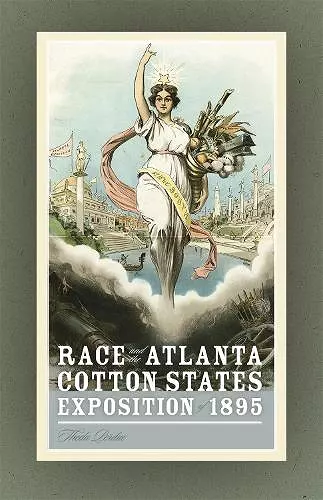Race and the Atlanta Cotton States Exposition of 1895
Format:Paperback
Publisher:University of Georgia Press
Published:1st Oct '11
Should be back in stock very soon

The Cotton States Exposition of 1895 was a world’s fair in Atlanta held to stimulate foreign and domestic trade for a region in an economic depression. Theda Perdue uses the exposition to examine the competing agendas of white supremacist organizers and the peoples of color who participated.
White organizers had to demonstrate that the South had solved its race problem in order to attract business and capital. As a result, the exposition became a venue for a performance of race that formalized the segregation of African Americans, the banishment of Native Americans, and the incorporation of other people of color into the region’s racial hierarchy.
White supremacy may have been the organizing principle, but exposition organizers gave unprecedented voice to minorities. African Americans used the Negro Building to display their accomplishments, to feature prominent black intellectuals, and to assemble congresses of professionals, tradesmen, and religious bodies. American Indians became more than sideshow attractions when newspapers published accounts of the difficulties they faced. And performers of ethnographic villages on the midway pursued various agendas, including subverting Chinese exclusion and protesting violations of contracts. Close examination reveals that the Cotton States Exposition was as much about challenges to white supremacy as about its triumph.
Race and the Atlanta Cotton States Exposition of 1895 is a model for how to read one historical event and find the deep meaning about the larger society in which it occurred. This book reveals the telling authority of racial tension in American life in the 1890s in three taut chapters and enriches our understanding of an event we've all heard about but, in fact, know relatively little about.
* author of Up from History: The Life of Booker T. Washington *This remarkably revealing book shows that an extraordinarily talented historian can turn an event that we thought we already 'knew' into a far richer source of new insight and broader and deeper understanding than we might ever have imagined. Thanks be to Theda Perdue for this illuminating account of the intersection of race, resistance, and imperial ambition in the capital of the 'New South.'
* author of Georgia Odyssey *Perdue offers amazingly detailed descriptions of the exhibits presented at the fair, walking readers through the sights and sounds of the attractions as fairgoers would have seen them in 1895, except with the addition of perceptive interpretations of the cultural significance of the displays.
Race and the Atlanta Cotton States Exposition of 1895 is a wonderful addition to the field of southern history. Perdue places the exhibition in broad historical context. In short, this book has a lot to recommend it. It both sparks academic curiosity and appeals to a general reader. It also fits nicely on a class reading list. Although taut, it packs a lot of punch.
In an uncommonly witty and entertaining monograph, Theda Perdue vividly reconstructs the physical geography of the exposition and imaginatively recreates the experiences of its visitors. On a deeper level, Perdue's incisive and engaging analysis dramatically expands our understanding of race relations in the Jim Crow South far beyond the interactions of whites and African Americans.
Pays close attention to the marginalized voices and, in so doing, uncovers unexpected accounts of how many of these participants confronted and even subverted the racism they encountered.
ISBN: 9780820340357
Dimensions: 216mm x 140mm x 13mm
Weight: 295g
220 pages